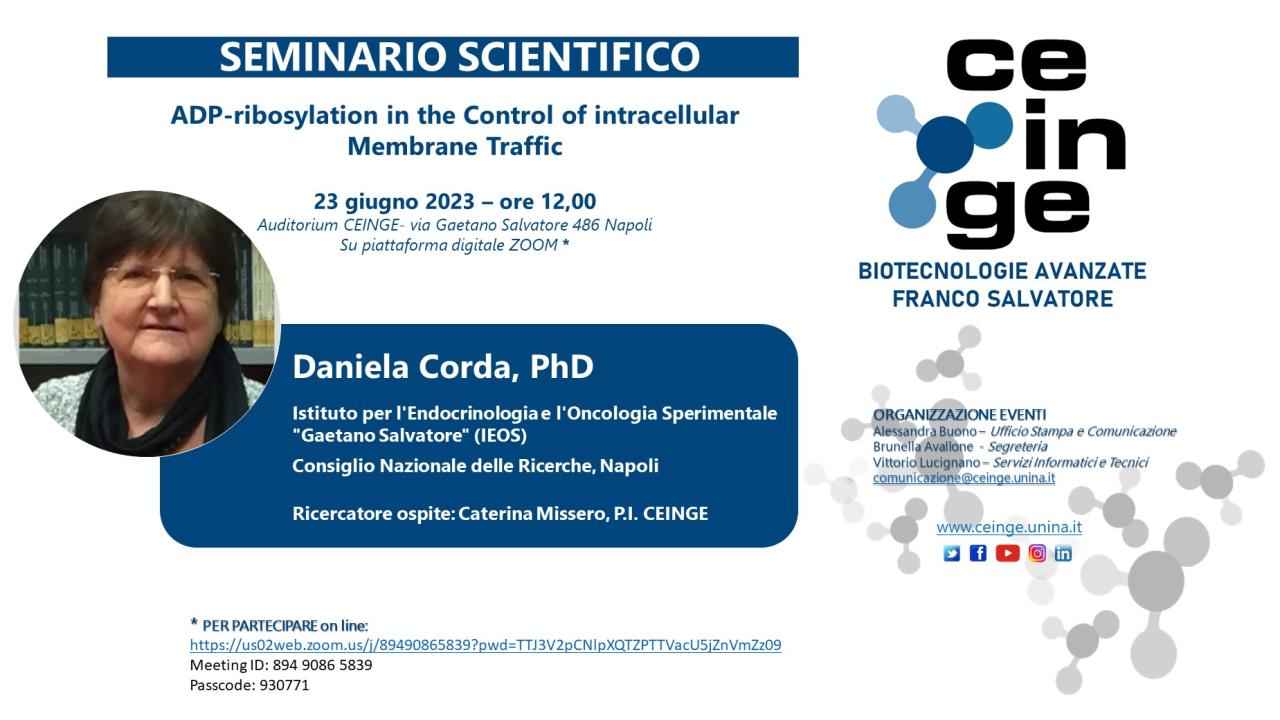
ADP-ribosylation in the Control of intracellular Membrane Traffic
Daniela Corda
Institute of Endocrinology and Experimental Oncology “G. Salvatore”- IEOS, National Research Council, Via Pietro Castellino 111, Naples, Italy
ADP-ribosylation is a protein post-translational modification (PTM) catalyzed by ADP-ribosyl-transferases (ARTs), an ancient class of enzymes, acquired throughout eukaryotic evolution by lateral transfer from bacterial conflict systems. Originally, ADP-ribosylation was discovered as the pathogenic mechanism of diphtheria toxin, a mono-ART that modifies elongation-factor 2, thus affecting protein synthesis. Numerous toxins were soon reported to be endowed with ART activities, targeting host factors involved in key cellular functions. Based on this knowledge, the search for mammalian ARTs flourished and led to the identification of the PARP and ARTC enzymes, which catalyze the poly- and mono-ADP-ribosylation (PARylation and MARylation) of cellular substrates. While the list of modified proteins is becoming increasingly rich, a full understanding of the relationship between this PTM and its physiological significance is still incomplete.
Among the PARP-family embers, we have investigated PARP12, an enzyme localized at the Golgi complex. We show that PARP12 is involved in the oxidative-stress response, with consequences on the organization of the Golgi membranes and inhibition of membrane transport. PARP12 substrates include Golgin-97 and Rab14: their MARylation contributes to the regulation of exocytic and endocytic routes. In addition, our proteomic analysis has identified other MARylated Rab-GTPases, such as Rab5, emphasizing the role of MARylation in membrane trafficking. Other PARPs are active in traffic steps, such as nuclear-cytosol trafficking/shuttling.
Overall, the growing information on the activities of mono-PARPs outlines a scenario that includes MARylation as a PTM determinant for membrane trafficking as well as various other cellular functions, with important physiological and pathological consequences.
